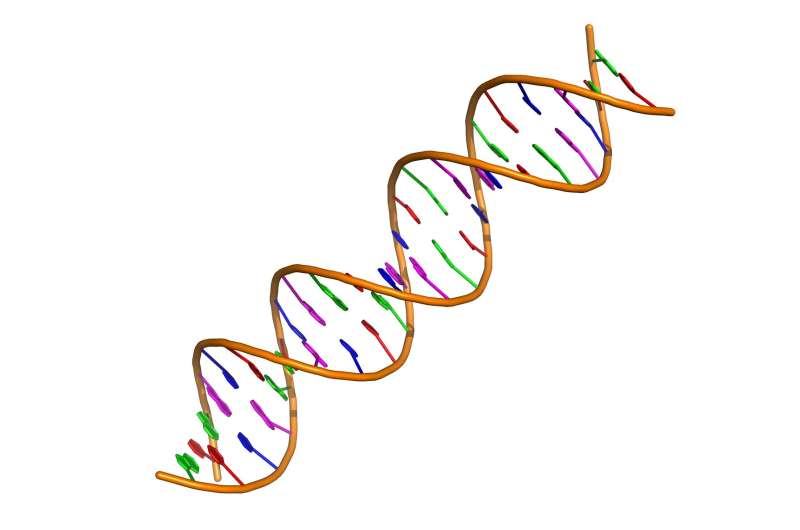
A one-time analysis of entire-tumor DNA is almost always sufficient to find all DNA errors that may be relevant for treating metastatic cancer. This is because actionable DNA errors remain remarkably stable over time, despite treatment with drugs. This discovery was made by Dutch researchers in a study led by the Netherlands Cancer Institute. They published their findings on August 9 online in the scientific journal Nature Medicine.
Cancer is caused by DNA errors that accumulate in our cells throughout life. In recent years, an increasing number of drugs have been developed that specifically target the effects of these DNA abnormalities in the tumor cell. However, many of these treatment targets are very rare, and therefore hard to find when you’re not specifically looking for them.
A solution to this problem is analyzing the entire tumor genome, so that all DNA errors become visible at once. This is called Whole Genome Sequencing (WGS), a diagnostic technique that is only used to a limited extent in standard of care for metastatic cancer.
However, there has been uncertainty about how often this procedure should be repeated, as it is known that tumors continuously change their DNA to adapt to given treatments.
Researchers led by the Netherlands Cancer Institute have now discovered that the DNA mutations that are relevant for selecting a treatment are actually very stable, even though the rest of the tumor DNA does indeed change rapidly. They saw this by sequencing the complete DNA of tumors of 231 patients at different moments during treatment.
Joris van de Haar, physician-researcher at the Netherlands Cancer Institute, says, “DNA defects for which registered drugs are available remained unchanged during treatment in 99% of patients. For DNA defects for which experimental study treatments are available, this was the case in 91%.”
This means that in almost all cases, it is sufficient for a physician to have the entire tumor DNA sequenced only once in order to get a view of all targeted treatment options. The study thus demonstrates that it is both useful and possible to map out the tumor DNA as early as possible, for example when diagnosing metastatic cancer, so that all possible options can be discussed with a patient at an early stage. In this way, no opportunities are missed.
Research leader Emile Voest from the Netherlands Cancer Institute notes, “Also in view of the costs of a WGS test, it is important to know that one test will almost always be sufficient.”
Based on these results, the researchers argue that this test should in fact be made available to all patients with metastatic cancer.
The study
Source: Read Full Article






